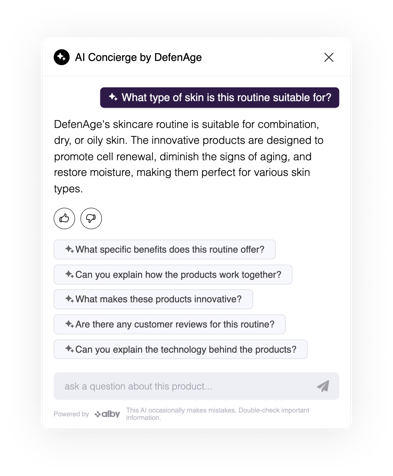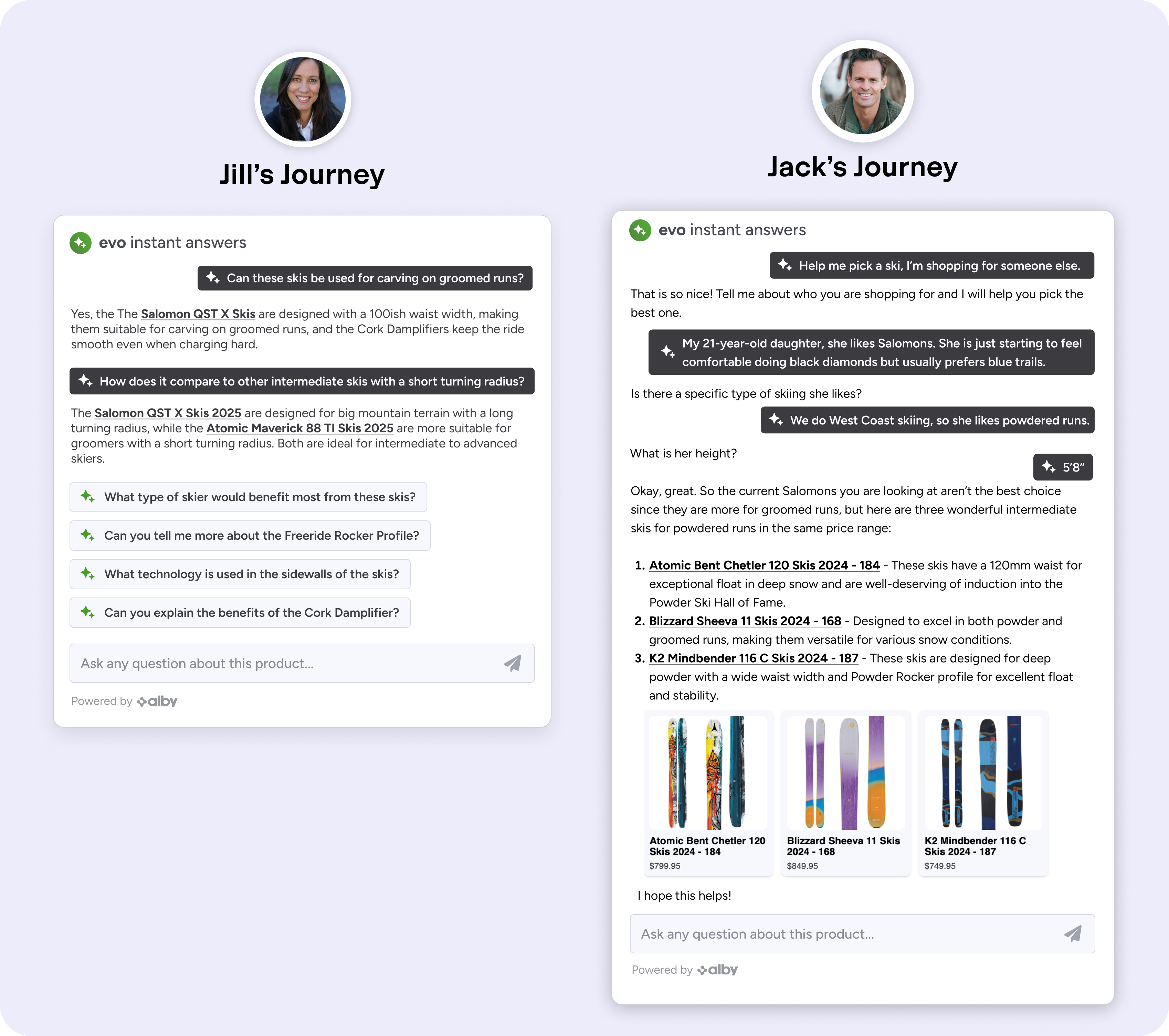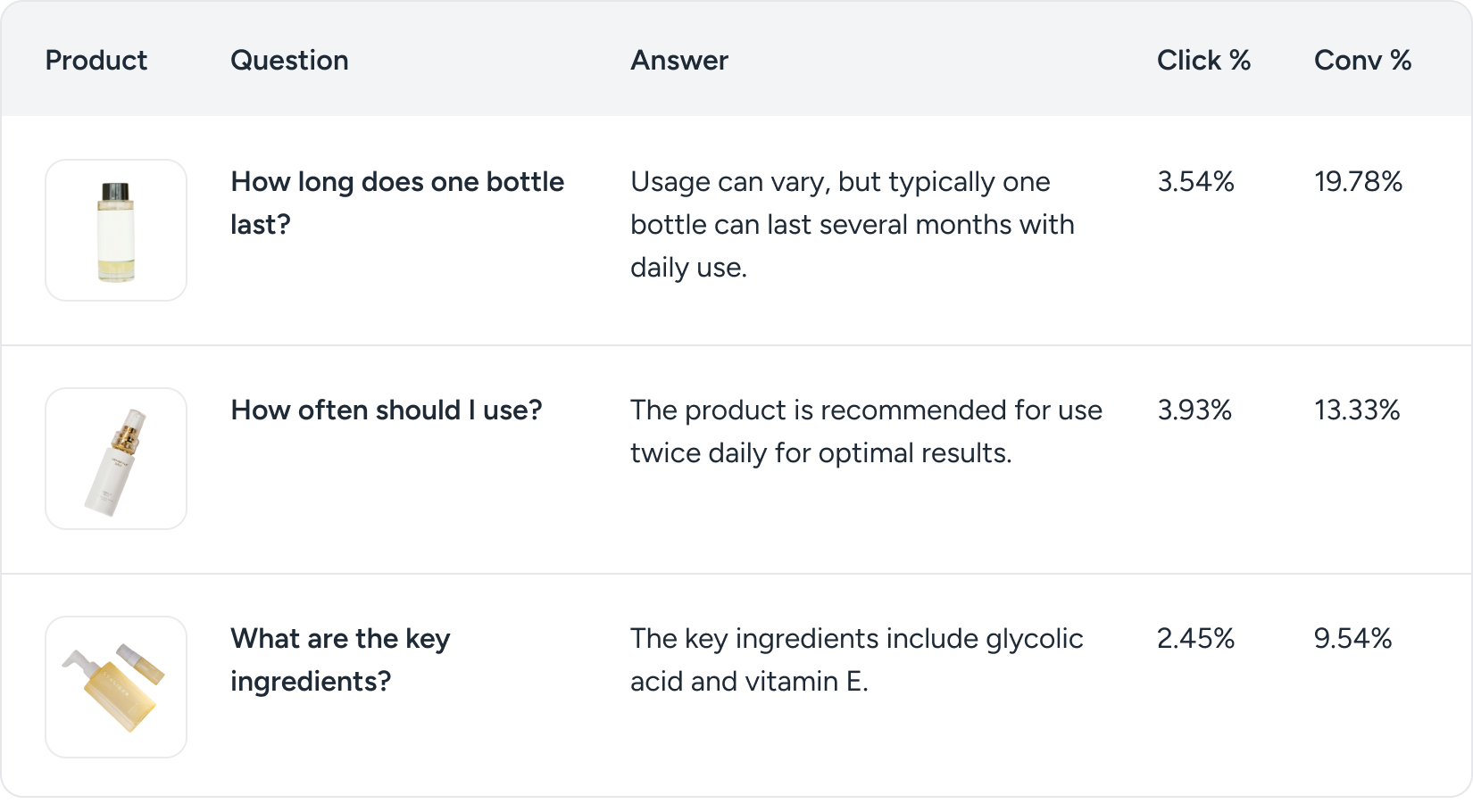Why Personalization Matters
Every shopper is different. Some are browsing for themselves, others are looking for a gift. Some are exploring options, while others know exactly what they want.
Catering to every shopper on your website can be extremely difficult. People are moving faster than ever on the internet. Studies show that our online attention spans have shrunk 75% in the past 20 years.
This means you only have a few precious seconds to capture shoppers' attention before they move on. If they struggle to find what they're looking for or need to leave your site to find more information, the chances of them completing a purchase are slim.
The solution is personalization. To thrive in e-commerce, merchants must anticipate the needs of each visitor to delivering tailored content and recommendations. But how do you know what each customer is truly looking for?
Conversational AI could be the way in.
Conversational AI in E-commerce

Conversational AI is revolutionizing the way retailers engage with customers. With AI-powered chatbots and shopping assistants, businesses can now offer instant, personalized assistance, answering customer questions in real time without the need for human support.
These tools don’t just streamline customer service, they provide valuable window into shopper behavior and preferences.
Before the rise of conversational AI, personalization largely relied on guesswork—piecing together shopper personas based on page views, cart activity, and time spent on various sections of the site.
But AI shopping assistants change the game by directly capturing what shoppers are asking, revealing their unique needs and preferences. The questions shoppers ask provide clues about their needs.
Conversational AI enables retailers to capture this information in real time and respond with personalized content to guide shoppers to the information they are looking for and eventually to checkout.
How to Personalize Customer Experience with AI Shopping Assistants
Understanding Shoppers’ Needs
AI shopping assistants can learn a lot about your customers by asking questions that help define their needs, either directly or indirectly.
For example, a shopper looking for skincare products might ask about the skin types compatible with a particular product. This tells the brand that the shopper prioritizes skin type compatibility. Alby's AI shopping assistant will follow up accordingly.

Delivering Tailored Information
Shoppers don’t want generic answers to their specific questions. They are looking for details. AI shopping assistants can pull from vast knowledge to deliver tailored information based on shoppers' questions.
For example, customers at Denali Electronics often seek specific parts that are compatible with their motorcycles. Alby uses information from their catalog and internal documentation to provide the detailed answers to Denali's shoppers individual technical questions.
This allows shoppersto make informed purchasing decisions without waiting to consult a human representative.
Providing Smart Product Recommendations
One of the most powerful forms of AI personalization is product recommendations. AI shopping assistants make smart product recommendations based on shoppers needs and deep knowledge of the store's catalog.
For instance, if a customer is browsing for skis on Evo, alby considers key factors like skill level to recommend the appropriate products. Alby then guides shoppers to different products in he Evo catalog that may be better suited for the shopper.

Building Shopper Personas
Every shopper has a unique profile. AI shopping assistants can help build these personas by gathering valuable insights from the questions shoppers are asking. Alby’s AI insights allow retailers to understand what shoppers need to know before they feel confident enough to make a purchase—or decide against it.

By combining these insights, retailers can create detailed customer personas. These personas enable brands to think more strategically about marketing and product efforts.
Summary
AI-powered shopping assistants enable retailers to understand individual shopper needs by creating a two-way conversation. Powered by conversational AI, this approach allows customers to share more about their preferences than ever before.
This empowers retailers to craft personalized experiences by:
- Delivering tailored information
- Making smart product recommendations
- Building detailed shopper personas
As a result, retailers can more effectively target marketing efforts and elevate the customer experience to drive conversions and longterm customer loyalty.